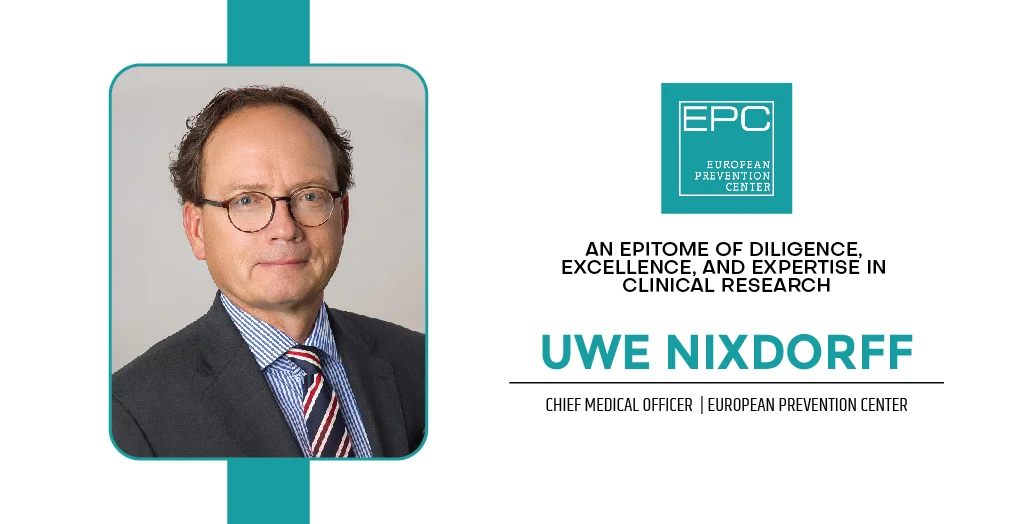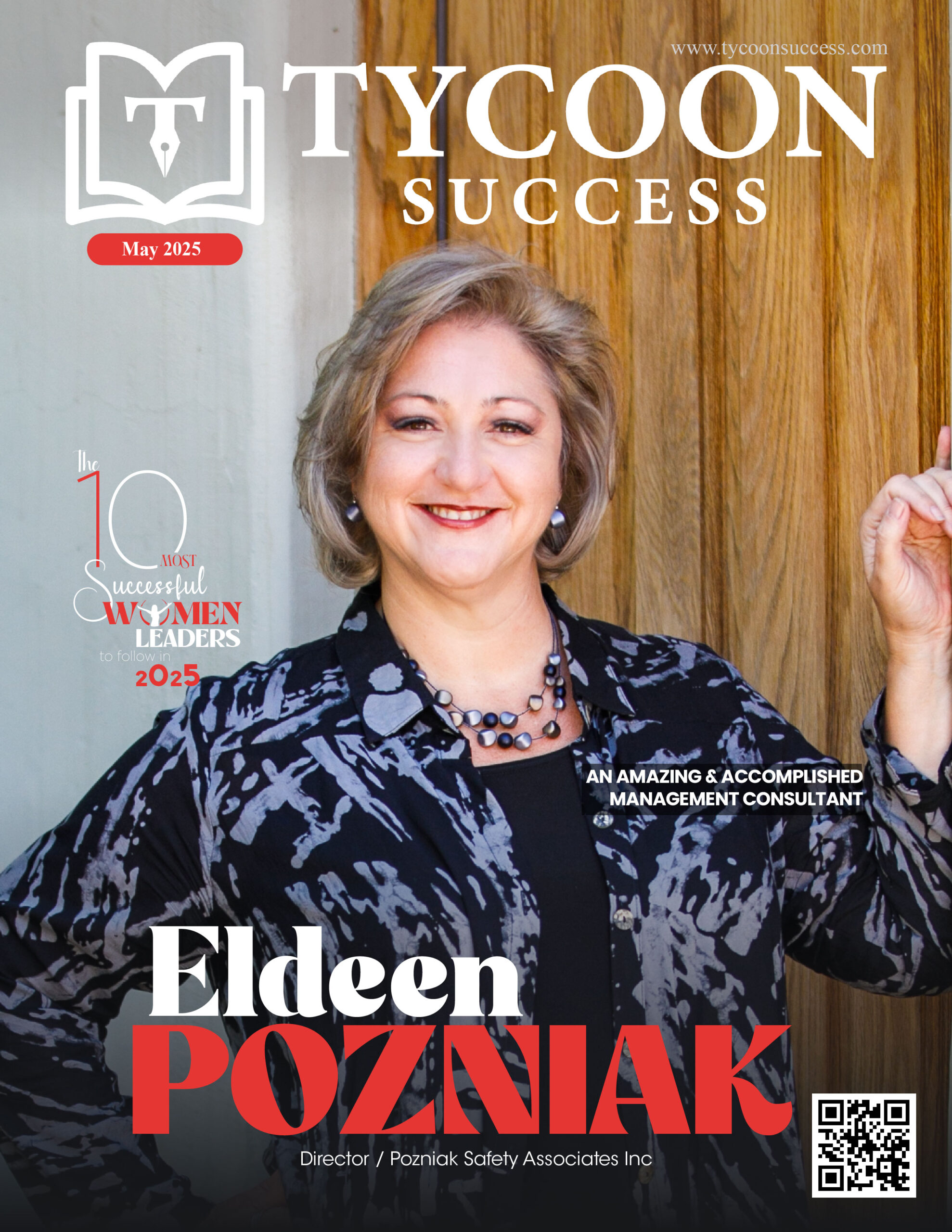Dr. Uwe Nixdorff, M.D., Fellow of the European Society of Cardiology (FESC), Associate Professor, a specialist in preventive medicine and diagnostics and the owner of the Private Practice for Cardiology in Düsseldorf. In addition, he is the founder and Medical Director of the European Prevention Center (EPC), being a first accreditated preventive center in Europe assigned by the European Association of Preventive Cardiology (EAPC) / European Society of Cardiology (ESC).
Prof. Nixdorff focuses on cardiovascular preventive medicine, specializing in comprehensive diagnostics (cross-sectional and functional diagnostics) and dialogue medicine, including detailed lifestyle consultation. As an EPC location, Prof. Nixdorff offers check-up programs for companies, private customers, and self-paying patients.
Prof. Nixdorff’s leadership in preventive cardiology is evident in his research and interest in cardiovascular imaging / noninvasive cardiology. Prof. Nixdorff has developed an innovative algorithm for assessing cardiovascular risk and detecting preclinical atherosclerosis. He has contributed to the ESC Textbook of Preventive Cardiology and has served as Secretary on the Executive Board of the EAPC.
Throughout his academic career, Prof. Nixdorff has concentrated on cardiovascular imaging techniques such as high-end echocardiography including tissue Doppler (TDI) and strain rate imaging (SRI), stress echocardiographiy, cardiac multi-detector computed tomography (MDCT), and magnetic resonance imaging (MRI). His work has shown that advanced imaging can detect minor abnormalities before symptoms appear, inspiring the development of check-up medicine and establishing the EPC.
Integrating Technologies in Preventative Care
Prof. Nixdorff relies on global guidelines from organizations like the American Heart Association (AHA) and the ESC to create clinical algorithms, which he terms preventative medical triage. Risk assessment tools such as the European Heart Score or PROCAM categorize individuals into low, intermediate, and high-risk groups. Prof. Nixdorff emphasizes using additional diagnostic methods for intermediate-risk patients, as this group benefits the most from prognostic insights.
Identifying Early Signs
Prof. Nixdorff believes advanced diagnostic technologies have mainly been used for serious illnesses, particularly in the field of intensive care. Recognizing the role of lifestyle factors in causing conditions like atherosclerosis, which can lead to heart attacks or strokes, has led to a push for applying advanced technology to detect early signs of disease. Recently, scientific evidence has also shown that identifying early signs of disease and taking personalized preventive measures can significantly improve long-term outcomes, particularly by preventing chronic diseases from developing.
This process of risk assessment and early detection of hidden diseases has shown the necessity to create preventative measures across all aspects of lifestyle, including fitness, nutrition, and stress management. This approach also involves lifestyle consultations and evidence-based prescriptions for medication and supplements. Over the past 15 years, this system has been developed within the EPC, with regular follow-ups typically scheduled every two years and more frequent check-ins initially based on the specific preventive measures undertaken.
Meeting Patients’ Diverse Needs
Prof. Nixdorff believes that the key to personalized medicine is recognizing that every individual needs a different approach to treatment. In recent years, there has been a shift towards considering both the physical characteristics (phenotype) and genetic makeup (genotype) of each individual. Technology advancements have made genetic testing more accessible and affordable, allowing for a more comprehensive understanding of each person’s unique health profile.
Fostering Collaboration
Prof. Nixdorff firmly believes that clinical networking with other centers/colleagues is paramount. While the EPC primarily focuses on preventive measures, it is also prepared to provide therapeutic interventions when needed, a distinction that sets it apart from similar centers. However, when more invasive procedures like surgery are required, EPC acknowledges its limitations and prioritizes the patient’s well-being. In such a scenario, EPC coordinates with other centers and facilitates the transfer of care to ensure a smooth transition and minimize any potential issues.
Turning Negatives into Positive
According to Prof. Nixdorff, some of the most impactful stories involve individuals diagnosed with malignant tumors.
“Although this is a shocking event in every case, we used to turn this negative finding into a positive: we congratulate those patients (no longer just a customer) for getting this diagnosis as now we can cure the problem, and survival may be guaranteed. Turn it the other way round: if malignancy is only detected in the circumstance of any symptom (the usual matter of concern in conventional, symptomatic medicine), there is no cure any longer possible in most of those cases. Just to some degree, palliation may enhance the limited life expectancy. This is the most convincing rationale of preventive medicine,”- he explained.
Picture of the Future
With a shift in demographics, people are living longer lives, but their overall health and well-being may not be keeping pace. This brings a challenge known as the ‘health span’ gap, where people are living longer with several health issues.
So, under Prof. Nixdorff’s leadership, EPC is bringing brand new scientific evidence from the “bench to the bedside”. However, the organization also prioritizes the careful evaluation of new developments, ensuring that they are supported by sufficient evidence before implementing them. EPC’s responsibility to its clients includes balancing innovation with proven effectiveness, as not every new advancement may be suitable for their needs.





